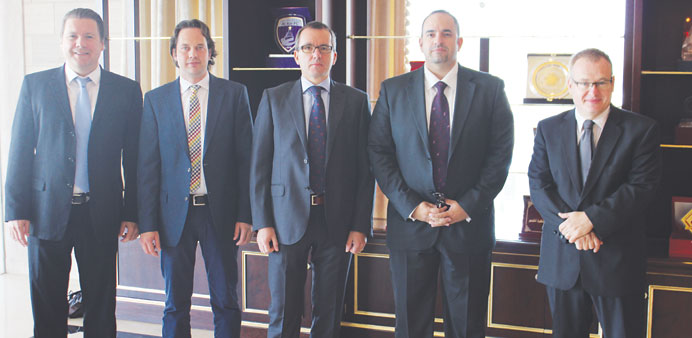A short nap during daytime and not being angry all the time may save you from life threatening medical conditions such as a paralysing stroke, a Swiss doctor recommends.
Dr Daniel Zutter, a specialist in neurology and internal medicine at the Centre for Neurological Rehabilitation in Switzerland, was in Doha recently as part of a Swiss health delegation.
Speaking to Gulf Times, Dr Zutter said that he frequently dealt with cases of stroke, brain injuries and Parkinson’s from Qatar and other GCC countries. He attributed these illnesses to poor lifestyles and unhealthy habits such as smoking.
“I’ve been treating patients from Qatar for the past four years now. Mostly I treat patients who suffer from stroke, brain injuries due to accidents or chronic neurological diseases like Parkinson’s or multiple cirrhosis,” Zutter said.
The risk factors for heart diseases such as hypertension, diabetes and smoking are exactly the same for the human brain. The doctor said that he observed that among his patients from GCC countries, people suffering from stroke were mostly middle-aged. The youth generally were treated for injuries suffered in car accidents, while the elderly have Parkinson’s, a degenerative disorder of the central nervous system characterised by tremor and impaired muscular co-ordination.
According to the doctor, 25 years ago when a patient suffered from a condition such as a stroke, he would be told that there was nothing much that a doctor could do and recommendations would be made to shift the patient to a nursing home. “But today due to new methods and technology, nine out of 10 people make complete recovery and are able to go home to lead an independent life,” the doctor said.
Dr Zutter gave the example of one of his Qatari patients, who was 55 years old and weighed over 100kg. He had suffered a massive stroke and his right side was completely paralysed. “With traditional physiotherapy methods, the patient could hardly make any significant recovery because it was very difficult to lift him. But with our robotic technology, we saw him make a full recovery within weeks,” he said.
The Swiss delegation that visited Qatar comprised three doctors who were specialists in neurosurgery, orthopaedics, spinal surgery and oncology.
The delegation also met HE the Minister of Health Abdullah bin Khalid al-Qahtani to discuss how to facilitate the exchange of visits between doctors of both countries; treatment of patients in Switzerland and explore points for a future agreement between the Ministry of Health and Swiss hospitals. They also met top officials of Hamad Medical Corporation during their stay in Qatar.
Swiss Ambassador to Qatar Martin Aeschbacher said that Switzerland was known world over for its expertise in the field of medical treatment, especially neuroscience.
“We want to explore this potential to further develop the relations between our two countries,” Ambassador Martin said.

Members of the Swiss doctors delegation who were in Qatar recently.
